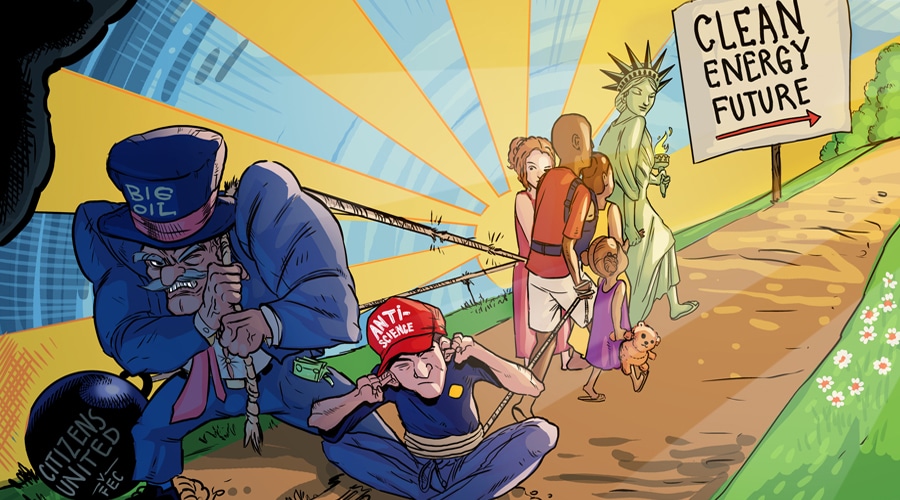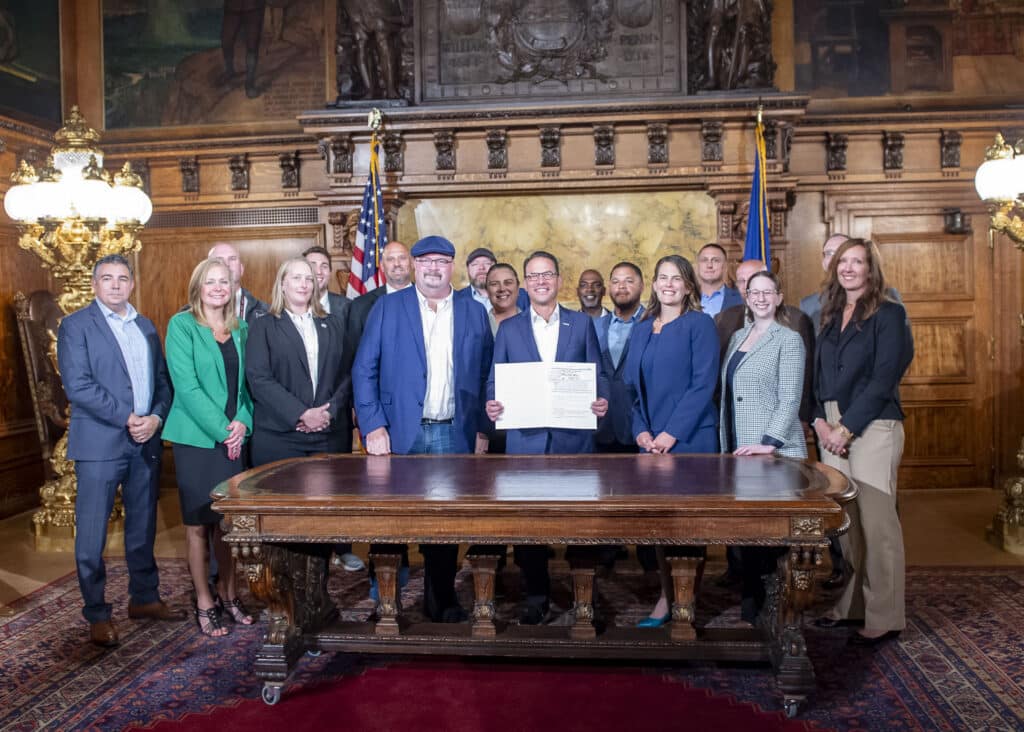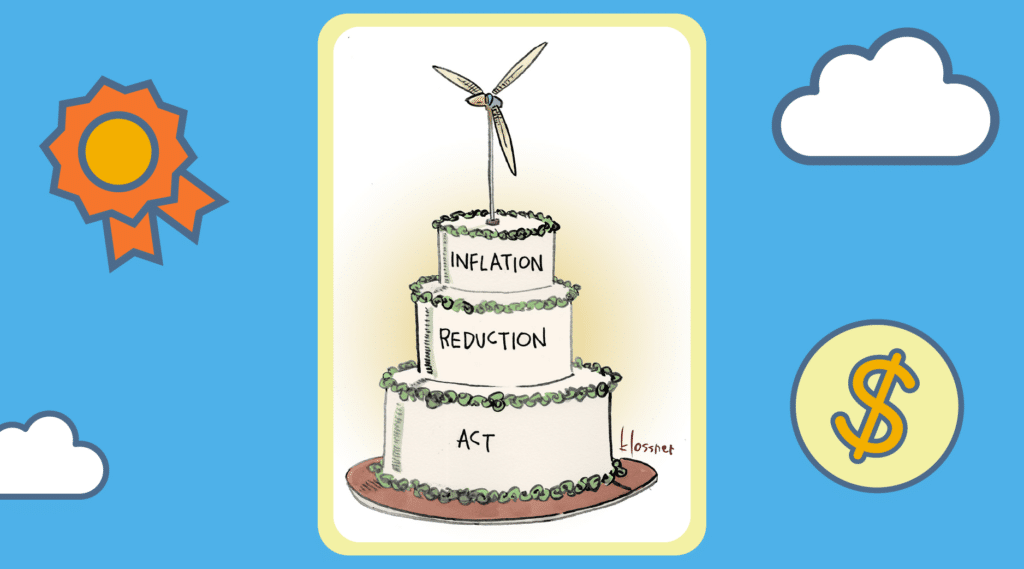No matter how you slice it, the U.S. love affair with fossil fuels is ending. Polls show that Americans overwhelmingly support renewable energy sources like solar and wind, and more than two-thirds of voters favor giving federal stimulus funds to renewable energy companies. Meanwhile, public support for coal, oil, and gas is waning. More and more corporations, universities, and other institutions are divesting from fossil fuels and taking climate change seriously, as they see the writing on the wall for the planet and their own bottom lines. So, what’s still holding us back from moving more rapidly to the clean energy future we need? Put simply: power, money, and influence. To kick the engine of change into high gear, we need to flex our muscles as citizens, consumers, and constituents—especially over the next 100 days.
The fossil fuel industry has a tremendous grip on our political system, and you don’t have to dig deep (or really at all) to find it. Of the 20 most powerful people holding federal environmental jobs today, most either have direct ties to fossil fuel or related companies, or they have deliberately fought to undermine regulations they’re now supposed to enforce. These include the administrator of the Environmental Protection Agency, whose former law firm was paid millions to ease restrictions on coal companies; the head of the Department of the Interior, a former lawyer and lobbyist for Halliburton and other oil and gas companies; the U.S. energy secretary, a former lobbyist for Ford Motor Company; and the chairman of the Federal Energy Regulatory Commission, a former energy adviser to Republican Sen. Mitch McConnell (R-KY) who fought against climate regulations like the Clean Power Plan. Can we really believe that these officials are acting in the public interest?

Meanwhile, the dark money abounds. Well-known companies like ExxonMobil are hiding behind front groups that spend millions to urge our politicians to support fossil fuels and oppose climate regulation. With this level of funding, it’s easy for the climate denial apparatus to flood social media and other channels with misinformation about the science of climate change. Influential business groups like the U.S. Chamber of Commerce and the National Association of Manufacturers are largely in the pockets of the fossil fuel industry. The 2010 Supreme Court decision of Citizens United—which opened the door to big money in politics—made it even easier to hide the money, resulting in what Sen. Sheldon Whitehouse (D-R.I.) has called the “stolen” decade for climate action.
But we can’t blame it all on partisan politics. Even as some corporations use their money and influence to push the climate denial agenda, companies at the other end of the spectrum—forward-thinking businesses that recognize the urgency of climate action—have largely sat on the political sidelines, and most Americans don’t even realize it. As Sen. Whitehouse points out, these companies talk a good game and have great climate policies within their corporate walls, “but when they come to Congress, they couldn’t give a red hot damn about climate change.” Rather than being an issue of Congressional in-fighting, he says, “it’s a problem of nobody showing up.” As a result, many top lawmakers simply aren’t aware of the growing corporate efforts to tackle climate change, including large-scale procurement of renewable energy and the setting of emission reduction targets.

Ultimately, we’re not going to get where we need to be—and fast enough—as long as entrenched fossil fuel interests in Washington lead the show, and as long as climate-friendly corporate America fails to flex its lobbying muscles. Those of us who truly care about clean energy (voters, business leaders, and policymakers) need to devote our energies to tackling the bigger picture rather than spending time trying to get every detail of a climate bill right. We need to make it non-negotiable for big companies, big banks, and big business associations to go to Congress and pressure lawmakers to act on climate (a recent virtual advocacy day was a positive sign, but not enough). We need to root out the dark money behind climate denial, whether through investigations, lawsuits, subpoenas, or similar methods. And we need to shift the narrative to one where taking strong action on climate and clean energy is the norm, not the exception, and where legislators know that when they act, businesses and their constituents will have their back.
For citizens, consumers, and constituents like us, this important work can manifest itself in a variety of ways: deeper participation in the democratic process this election season (e.g., attending virtual “town halls,” questioning candidates about their climate/clean energy plans, engaging in virtual advocacy events, volunteering for get-out-the-vote efforts), pressuring businesses with petitions, boycotts, or engaging in public conversation, or spreading credible (emphasis on credible) reporting within our communities and networks.
As the November election approaches, these efforts can help lay the groundwork for a dramatic acceleration in our country’s transition to clean energy if and when the political dynamic shifts. It’s time to double-down, rally the masses, and tell our business and political leaders what sort of action we want and expect—so we can proceed full sail to the clean energy future we need.















